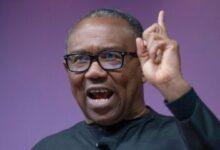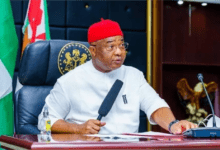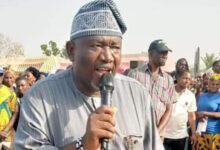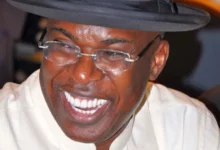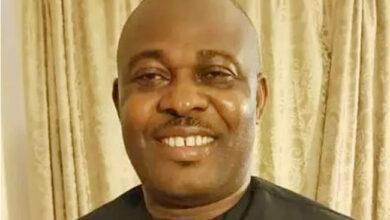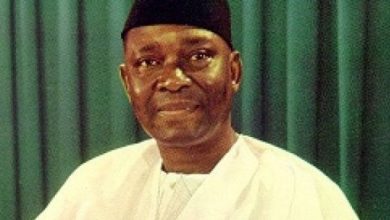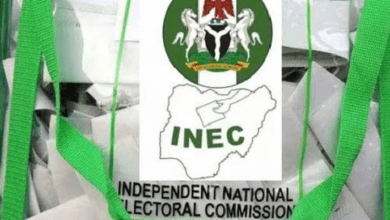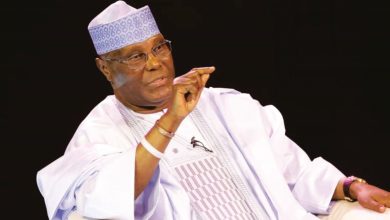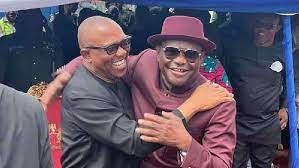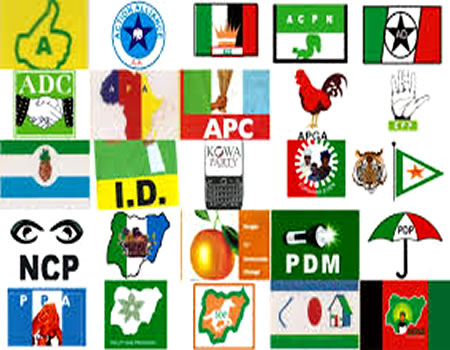
History of political parties in Nigeria
A political party is an organization in a democratic system of government that seeks to attain power through an electoral process and representation in government. They have political activities and ideologies that guide their membership and activities.
See Also: How is Money Essential in Nigerian Politics?
👉 Relocate to Canada Today!
Live, Study and Work in Canada. No Payment is Required! Hurry Now click here to Apply >> Immigrate to CanadaPolitical parties are fundamental to the democratic process. There can be no democracy without political parties. Democracy is a form of government that delegates power through an electoral process, and political parties are platforms through which power is contested for in a democratic system of government.
The history of political parties in Nigeria goes as far back as the British colonization of the nation. Herbert Macaulay, grandson of Bishop Ajayi Crowther, formed the first political party in Nigeria – Nigeria National Democratic party – in 1922.
The national struggle of most African countries to free themselves from the imperial rule of the British government, and to participate more in governing their national affairs, led to the formation of many political parties across Africa. So, the NNDP was one among a long list of politcal parties and politically inclined organization springing up across the African continent.
In West Africa for example, prominent patriots felt that, to achieve the common goal of liberation from colonialism, a joint international organisation should be formed. So, in 1920, the likes of Ghanian lawyer, Joseph Casely Hayford and Dr. Akinwande Savage led a host of representatives from all West African countries to host a West African conference, and there, The National Commission of British West Africa (NCBWA) was formed.
The NCBWA was to further continue the push for freedom from British colonialism. After the conference, a delegation was sent to the office of the Secretary of state for the colonies informing him, not just of the forming of the commission, but also of the demand of the colonies. Their demands, in no particular order, were;
- The separation of the legislature from the judiciary.
- A legislative council for each territory, with elected Africans occupying half the seats on the council.
- Abolition of racial prejudice and discrimination in and from the civil service.
- Establishment of a university in West Africa.
- Appointment of and disposition of chiefs by their own people.
- Control of taxation by the elected Africans on the legislative council.
The commission was, by these demands, seeking active participation of West Africans in the politics and governance of the West African people.
See Also: Politics in Nigeria; Overview, Brief History, Problems, Prospects
The colonial secretary general, however, turned down their demands. However, Sir Hugh Clifford would later, in 1922 in Nigeria, embed the elective principles in the famed Clifford constitution of 1922. The Clifford constitution, the first constitution Nigeria ever had, paved way for active participation of Nigerians in the political affairs of the nation. It would also pave way for the formation of the NNDP in the same year.
👉 Relocate to Canada Today!
Live, Study and Work in Canada. No Payment is Required! Hurry Now click here to Apply >> Immigrate to CanadaThe Herbert Macaulay led NNDP would then contest, and, eventually win all seats in the Lagos municipal elections of 1923, 1928, and 1933. The success of the NNDP would lead to the formation of the Lagos Youth Movement (LYM) in 1934, by the likes of H.O Daniels, Earnest Okoli, Samuel Akinsanya, and J.C Vaughan – young blossoming intellectual talent in the nation.
The likes of Dr. Nnamdi Azikiwe, Obafemi Awolowo, Dr. Kofo Abayomi, amongst others, would eventually join the movement. The name of the movement would later be changed to the Nigerian Youth Movement (NYM). Then, in 1944, the National Council of Nigeria and Cameroon (NCNC) was formed because of the infusion of Southern Cameroon into Nigeria, making it a part of the Nigerian territory. NCNC had Herbert Macaulay and Dr. Nnamdi Azikiwe at the helm of affairs as President and Secretary respectively.
The MacPherson constitution would eventually follow in 1951. Unlike the Clifford constitution, the MacPherson constitution was not unilateral, as it had the entire nation participate in its formation. Thus, the dream of active participation in the politics and governance of the nation’s affairs by its citizens was gradually being achieved. Two more parties would follow the MacPherson constitution – the Action Group (AG) and the Northern People’s Congress (NPC), both formed in 1951.
Read Also: Why Money Politics Should Be Discouraged In Nigeria
The AG was formerly Egbe Omo Oduduwa (Society for the Descendants of Oduduwa), which was formed in 1945, in London, by Obafemi Awolowo, Ooni of Ife, and Michael Ajasin. The NPC, as well, was formed from the Jamiyar Mutanen Arewa, and was formed to cater for the political interests of the Northern people. Thus, the Nigerian political landscape was first framed by the NNDP, NYM, NCNC, AG, and NPC. A handful of other political parties would eventually follow, although those were formed either as opposition, or for some other purposes.
Example of some of these political parties are Mallam Aminu Kano’s Northern Elements Progressive Union (NEPU), formed to oppose the NPC’s dominance in the north, The United Middle Belt Congress (UMBC), formed from the merger between the Middle Belt’s People’s Party (MBPP) and the Middle Zone League (MZL), and with the aim to pursue the interest of those in the middle belt of Nigeria. In the eastern region, the United National Independence party (UNIP) would break away from the NCNC and stand in contention for the eastern part of Nigeria. Then, in the Western region, the Nigeria National Development Party (NNDP), formed by Chief Akintola, would break away from the Action Group to contend with the AG for the Western region. However, Chief Akintola would later merge the NNDP with the NPC and MDF to form the Nigeria National Alliance (NNA). He would also form a coalition in the east with the NCNC to form the United People’s Party (UPP). Chief Obafemi Awolowo would, then, reorganized his Action Group, and with coalitions with the NCNC, UMBC, and NEBU form the United Progressive Alliance (UPA) ahead of the 1964 elections.
Therefore, the NNA and the UPA were the major political parties in Nigeria for the elections in 1964. The military would eventually take over, banning all political activities in the process. The ban on all political parties and political activities would later be lifted for the 1979 elections, as Nigeria prepared for the transition from military rule to civilian rule.
Five political parties were registered by the Federal Electoral Commission (FEDECO) for the elections. They were; Obafemi Awolowl’s Unity Party of Nigeria (UPN), Sheu Shagari’s National Party of Nigeria (NPN), the Nigerian People’s Party (NPP), the Greater Nigeria Peoples People’s Party (GNPP), and the People’s Redemption Party (PRP). In 1983, however, another military coup signalled the end of the short-lived civilian rule, and another ban on political activities was imposed.
The military would, then, hold on to power for 16 years. Although, in 1993, General Ibrahim Badamosi Babangida had plans to transfer power, once again, to civilian rule. Two main parties, Moshood Abiola’s Social Democratic party (SDP), and the opposition National Republican Party contested in the election that was later annulled. Then, in 1998, plans were again made by the military government of General Adbussalaam Abubakar to shift power back to civilian rule. Elections were fixed for 1999 and two parties – The People’s Democratic party (formed from the SDP) and the Alliance for Democracy (formed based on the ideologies and philosophies of The Action Group, Awolowo, and the Yoruba heritage) – would contest for the seats of power.
The 1999 elections would set the stage for the struggle that would ensue on the nation’s political scene in the years that followed. Several political parties, like the All Nigeria People’s Party (APP), National Conscience Party (NCS), Labour Party (LP), All Progressive Congress (APC), KOWA, APGA, etcetera, would eventually be formed, and, would at one point or the other, contest for seats of power in the nation.
Today, the biggest political parties in Nigeria are the People’s Democratic Party (PDP) and the All Progressive Congress (APC). Currently, there are 91 registered political parties in Nigeria. We’ll end this article with a complete list of all of them.
List of political parties in Nigeria
- Accord (A)
- Action Alliance(AA)
- African Action Congress(AAC)
- Advanced Allied Party (AAP)
- All Blending Party (ABP)
- Advanced Congress of Democrats (ACD)
- Allied Congress Party of Nigeria (ACPN)
- Alliance For Democracy (AD)
- African democratic Congress (ADC)
- Action Democratic Party (ADP)
- All Grassroots Alliance (AGA)
- All Grand Alliance Party (AGAP)
- Advanced Nigeria Democratic Party (ANDP)
- Alliance for New Nigeria (ANN)
- Alliance National Party (ANP)
- Abundant Nigeria Renewal Party (ANRP)
- African Peoples Alliance (APA)
- All Progressives Congress (APC)
- Advanced People Democratic Alliance (APDA)
- All Progressive Grand Alliance (APGA)
- Allied Peoples Movement (APM)
- Alternative Party of Nigeria (APN)
- Action Peoples Party (APP)
- Alliance of Social Democrats (ASD)
- Alliance for united Nigeria (AUN)
- Better Nigeria Progressive Party (BNPP)
- Coalition for Change (C4C)
- Change Advocacy Party (CAP)
- Change Nigeria Party (CNP)
- Congress of Patriots (COP)
- Democratic Alternative (DA)
- Democratic People Congress (DPC)
- Democratic People Party (DPP)
- Freedom and Justice Party (FJP)
- Fresh Democratic Party (FRESH)
- Grassroots Development Party of Nigeria (GDPN)
- Green Party of Nigeria (GPN)
- Hope Democratic Party (HDP)
- Independent Democrats (ID)
- Justice Must Prevail Party (JMPP)
- Kowa Party (KP)
- Liberation Movement (LM)
- Labour Party (LP)
- Legacy Party of Nigeria (LPN)
- Mass Action Joint Alliance (MAJA)
- Modern Democratic Party (MDP)
- Masses movement of Nigeria MMN
- Mega Party of Nigeria MPN
- Movement for The Restoration and Defense of Democracy (MRDD)
- National Action Council (NAC)
- Nigeria Community Movement Party (NCMP)
- National conscience party (NCP)
- NigerIa Democratic Congress Party (NDCP)
- Nigeria Democratic Liberty Party (NDLP)
- Nigeria Elements Progressive Party (NEPP)
- Nigeria for Democracy (NFD)
- New Generation Party of Nigeria (NGP)
- National Interest Party (NIP)
- New Nigeria Peoples Party (NNPP)
- Nigeria Peoples Congress (NPC)
- New Progressive Movement (NPM)
- National Rescue Movement (NRM)
- National Unity Party (NUP)
- Peoples Coalition Party (PCP)
- People for Democratic Change (PDC)
- People for Democratic Movement (PDM)
- Peoples Democratic Party (PDP)
- Progressive People Alliance (PPA)
- Providence People Congress (PPC)
- People Party of Nigeria (PPN)
- People Progressive Party (PPP)
- People Redemption Party (PRP)
- Peoples Trust (PT)
- Reform and Advancement Party (RAP)
- Re-build Nigeria party (RBNP)
- Restoration Party of Nigeria (RP)
- Save Nigeria Congress (SNC)
- Social Democratic Party (SDP)
- Sustainable National Party (SNP)
- Socialist Party of Nigeria (SPN)
- United People Congress (UPC)
- United Democratic Party (UDP)
- United Patriots (UP)
- Unity Party of Nigeria (UPN)
- United Progressive Party (UPP)
- We The People Nigeria (WTPN)
- Young Democratic Party (YDP)
- Yes Electorates Solidarity (YES)
- Youth Party (YP)
- Young Progressive Party (YPP)
- Zenith Labour Party (ZLP)
Conclusion
Nigeria’s political history is a long one, dating as far back as before independence, into the colonial rule. Knowledge of this interesting history would help you understand better the political clime of the nation today, and the tension that comes with it. We hope this article has been helpful. Let us know.
